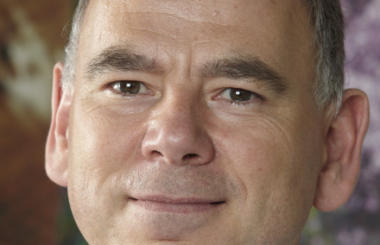Senior representatives of Oxfam, Marie Curie and RNIB have called for charities to be able to adopt a unitary board structure in order to meet the demands of increased regulation and a faster-paced society.
Speaking at the Charity Finance Group’s Large Charities Conference last week, Oxfam treasurer Robert Humphreys (pictured) led the calls for a one-tier board structure which would include executive and non-executive members.
Humphreys said: “The charity model at the moment I see as essentially being developed in the 19th century, in Victorian times, when a new wealthy middle class decided to set up trusts and foundations to address the problems they saw around them.
“That model, with trustees who are quite distant and not necessarily engaged, doesn’t stand well against the current focus on regulation, scrutiny and challenge.”
He added: “That philanthropic model of the 19th century really doesn’t scan when you start to look at the depth of scrutiny that is expected now of trustees, who are after all devoting a relatively small proportion of time on a voluntary basis to charities.”
‘Potential problems’
Later in the day, Humphreys put this point to closing speaker Dr Jane Collins, chief executive of Marie Curie, who agreed that charities’ two-tier structure “does create potential problems”.
She said: “I’m sure it was fine years ago when the world was kinder perhaps, but now things are moving very fast. We have six meetings a year plus a two-day away day, so eight meetings a year. I can contact any of my trustees right away, but it’s not quite the same.
“They’ve been very engaged doing extra workshops for the work we’ve been doing on the nursing service, so I think a unitary board would be the way forward.”
Speaking separately, RNIB’s group director of resources Rohan Hewavisenti emphasised that there is flexibility within the current charity structure, but suggested that charities should have more freedom to choose how they operate.
“We are now able to pay our trustees, even though it did take six months or a year to get that through the Charity Commission. But should that just be available?
“And I think the unitary board structure is a really important one that trustees shouldn’t be excluded from having as an option.”
Social impact bonds
Elsewhere, Collins also spoke of the disappointment Marie Curie felt in its efforts to engage with social impact bonds.
Referring to the Social Investment in End of Life Care Initiative, she said: “We had a really good go at it in the Midlands. We spent a huge amount of time and energy trying to make it work, and we just about got to a situation where there was a profit to be made by investors in making sure people were cared for at home didn’t go into hospital.
"Then the finance director of the CCG left, and it fell apart. We wasted – it wasn’t hundreds of thousands of pounds, it was probably the low tens – but nonetheless, as a charity you feel a bit let down.










